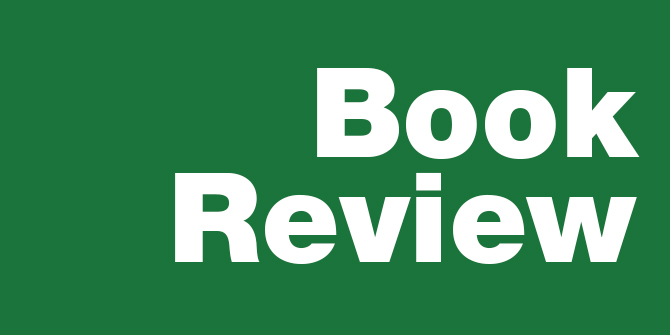In the countries bordering Lake Chad, young people face socio-economic challenges such as deprivation and exclusion, which have led to a growing sense of grievance and insecurity. This often leads to violence, which threatens to perpetuate a vicious cycle of insecurity in the region, writes Tope Shola Akinyetun
The Lake Chad region is one of the most troubled areas in the world. The Lake is estimated to have shrunk by 90 per cent since 1960 and the countries that border its banks (Chad, Nigeria, Cameroon and Niger) have seen increased incidents of armed conflict in recent years from groups such as Boko Haram and Islamic State.
In the countries around Lake Chad, there are over 302 million people under the age of 35. That is 75 per cent of the region’s total population. Cameroon, Nigeria, Chad and Niger all have fertility rates over 4.5, compared to the 2.3 world average. Further complicating the situation is the high prevalence of former child soldiers in the region who suffer from physical injuries, trauma, and have training in violence.
Excluded from decision-making, with limited economic opportunities. and a lack of access to education, grievances are building amongst the region’s youth. Since 2015, 900 schools have been destroyed and another 1,500 have been closed down across the region. In Cameroon’s Far North 144 schools were closed, and in Niger’s Diffa region 55 per cent of children are unable to attend school.
Grievance is often driven by a sense of deprivation and inequality, whether economic, political, or social. Once it takes hold, children and youths have become vulnerable to displacement and recruitment by violent gangs, which in turn exacerbates insecurity, which increases local deprivation.
A failure to address longstanding grievances related to the lack of essential services and poor living standards forces young people to find alternatives for survival. In such circumstances, joining a radicalised group becomes an outlet and a coping mechanism for frustration. The dominant themes driving youth to engage in violence in the countries around Lake Chad are youth unemployment, poor governance, and poverty.
Youth unemployment
Youth unemployment is a major problem around Lake Chad. Youth unemployment (15-29 years) in Cameroon is 15 per cent, 3.5 per cent in Chad, 10 per cent in Niger and 37 per cent in Nigeria.
High levels of youth unemployment and political exclusion render young people vulnerable to recruitment by terrorist groups. When people feel deprived or marginalised, they may be more likely to turn to political violence as a way of expressing their frustration. This has been observed in civil wars in countries including Nigeria.
Youth unemployment has contributed to the growth of insurgency groups in the Lake Chad region. In Cameroon’s Far North region, where over 75 per cent of young people are underemployed, Boko Haram easily recruit young people. In Niger, Boko Haram used the same tactic to recruit unemployed young people by offering them money.
Poverty
Areas most at risk for youth violence tend to be those that struggle with poverty. In these places, there are often lots of young people who are frustrated because of their living conditions and this makes them vulnerable to recruitment by terrorist groups.
In 2022, the poverty rate in Cameroon was 22.5 per cent of the total population, while in Chad, Niger, and Nigeria it was 34.5, 49.4 and 31.9 per cent respectively. This widespread poverty makes it more likely that young people will be recruited by armed groups who promise them better lives through the provision of economic and psychological support.
Recruits are often promised money, education, and shelter, as well as livestock and bicycles. Armed groups also promise to help vulnerable youth seek retribution for previous attacks on their family members by another armed group and give them a sense of belonging to a group in contrast to the perceived indifference of the state.
Poverty has also increased the number of child soldiers recruited by armed groups in the region. Boko Haram has steadily taken advantage of this to recruit 8,000 children since 2009.
While some of the children are kidnapped and forced to fight as soldiers, others have willingly joined due to the inability to afford necessities and lack of alternative sources of income. Therefore, they are compelled to join as a feasible option for survival.
Poor Governance
All the countries that surround Lake Chad suffer from weak governance. The African governance index shows that Cameroon ranks 37 out of 54 countries scoring 43.5 out of 100. Chad is 47th with a score of 33.9. Niger 28th with 47.8. Nigeria came in 34th with a score of 45.5. A decline in overall governance between 2010 and 2019 is recorded in Cameroon and Nigeria.
Poor governance contributes to youth violence, as young people are deprived of basic services and opportunities such as education, healthcare, and employment. Those who are subjected to these inequalities and injustices are prone to violence as a means of protesting their exclusion.
A growing population without commensurate resources can engender grievances and exclusion. Young people who feel frustrated and marginalised because of poverty, unemployment, and poor governance are more vulnerable to recruitment into violent groups. Around Lake Chad, where there are many young people, this poses a great threat and provides extremist groups with an abundance of young and inexpensive soldiers at their disposal. These groups specifically target youth who feel deprived and aggrieved and are willing to exert frustration against society fueling further cycles of violence and poverty.
Photo credit: Sentinal Hub used with permission CC BY 2.0




